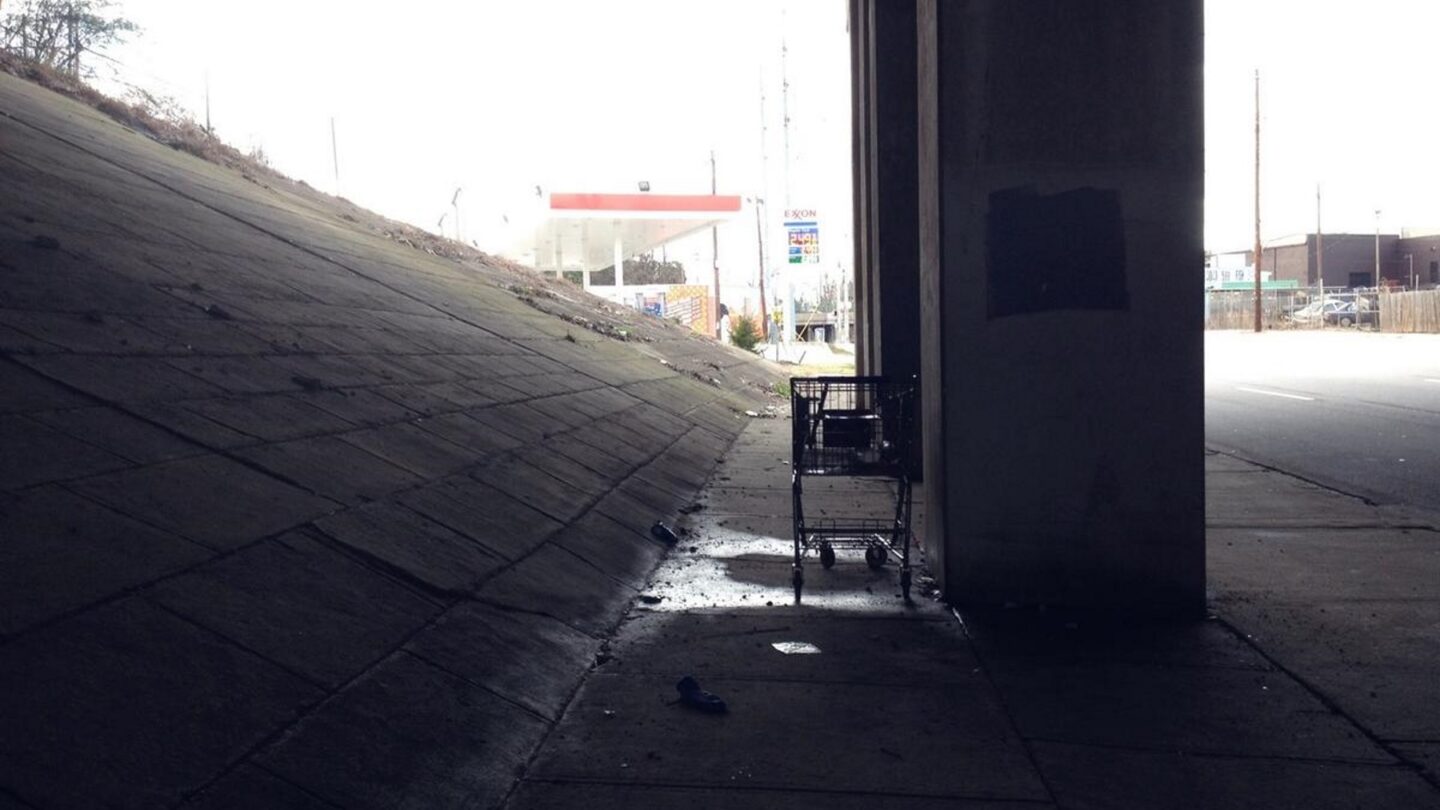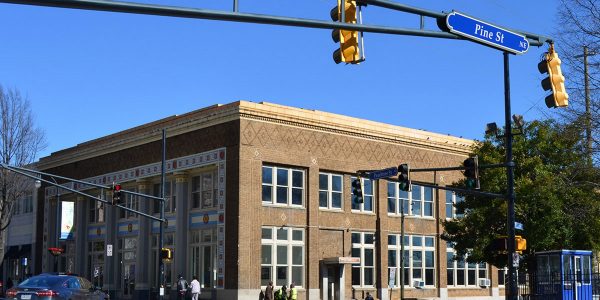Atlanta Shifts Strategy On Homelessness After Shelter Closure

Groups are working to address the issue of homelessness in Atlanta. The concept of smaller shelters in neighborhoods is taking hold after the closing of Atlanta’s large homeless shelter, Peachtree-Pine.
Peachtree-Pine, a homeless shelter on the edge of downtown Atlanta, used to house up to 500 people a night.
It was the city’s largest shelter until it shut down this summer following a $9.7 million settlement in a decade-long court battle between its operator, Metro Atlanta Task Force for the Homeless, and various downtown civic and business organizations.
Michael Johnson once stayed at the shelter and didn’t like it. It was scary, he said.
“It’s a nightmare. I’m glad it’s over; it’s not a place for me,” Johnson said while waiting for a warm meal at Crossroads Community Ministries, next to the now-closed Peachtree-Pine shelter.
Crossroads used to feed many of the people who stayed at the shelter.
Its famous kitchen serves hundreds of meals a day and offers other support services for the homeless in downtown Atlanta.
Crossroads is also the largest provider of documents in the state as it helps those who have lost their identification due to evictions or other circumstances navigate the system. Crossroads Ministries also serves as the address for hundreds of homeless people who can pick up their mail there.

Now Crossroads is helping to connect the remaining Peachtree-Pine residents with other shelters. Since August, Crossroads director Tony Johns has been working the phones.
“One bed here, two beds there, 10 beds somewhere else,” he says.
The closure of the controversial shelter is a turning point for Atlanta.
“I don’t think we will see shelters that house five, six, seven hundred at a time anymore, Johns said.
Instead, the concept of small homeless shelters in neighborhoods is taking hold. Experts say they are much more effective in helping people who are homeless.
The city of Atlanta and United Way have banded together to spend about $50 million to help homeless people in the city.
That includes money for more smaller shelters in Atlanta.
Johns says homelessness can’t just be a downtown problem anymore. Everyone in the Atlanta region needs to take responsibility, he said.
“A lot of churches from the suburbs like to drive downtown and provide meals. And for the most part, we’d prefer that they stay there and provide meals there,” Johns said, admitting that such a statement may not be popular.
He doesn’t want to curb compassion for homeless people, but he wants communities to work on preventing homelessness in the first place.
The latest count in Atlanta found 3,572 people without homes. That’s down 12 percent from last year, according to city officials.
Many homeless people still struggle to get shelter space, especially those with addictions, mental illness or former inmates.
The city says it will open what’s called a low-barrier shelter next month. The idea is to house people first and then assess their needs, rather than set restrictions before someone is admitted to a shelter.
Johnson says he’s excited about a spot he got at a treatment program called Hope House.
“I’m about to get my life together. It’s time to move forward not backward,” he said.
Atlanta also wants to move forward and prove that it can help the homeless population in the post-Peachtree-Pine era.
Atlanta voters are preparing to elect a new mayor and replace nearly half the City Council. In this moment of transition, WABE is exploring “The Future of Atlanta.”








